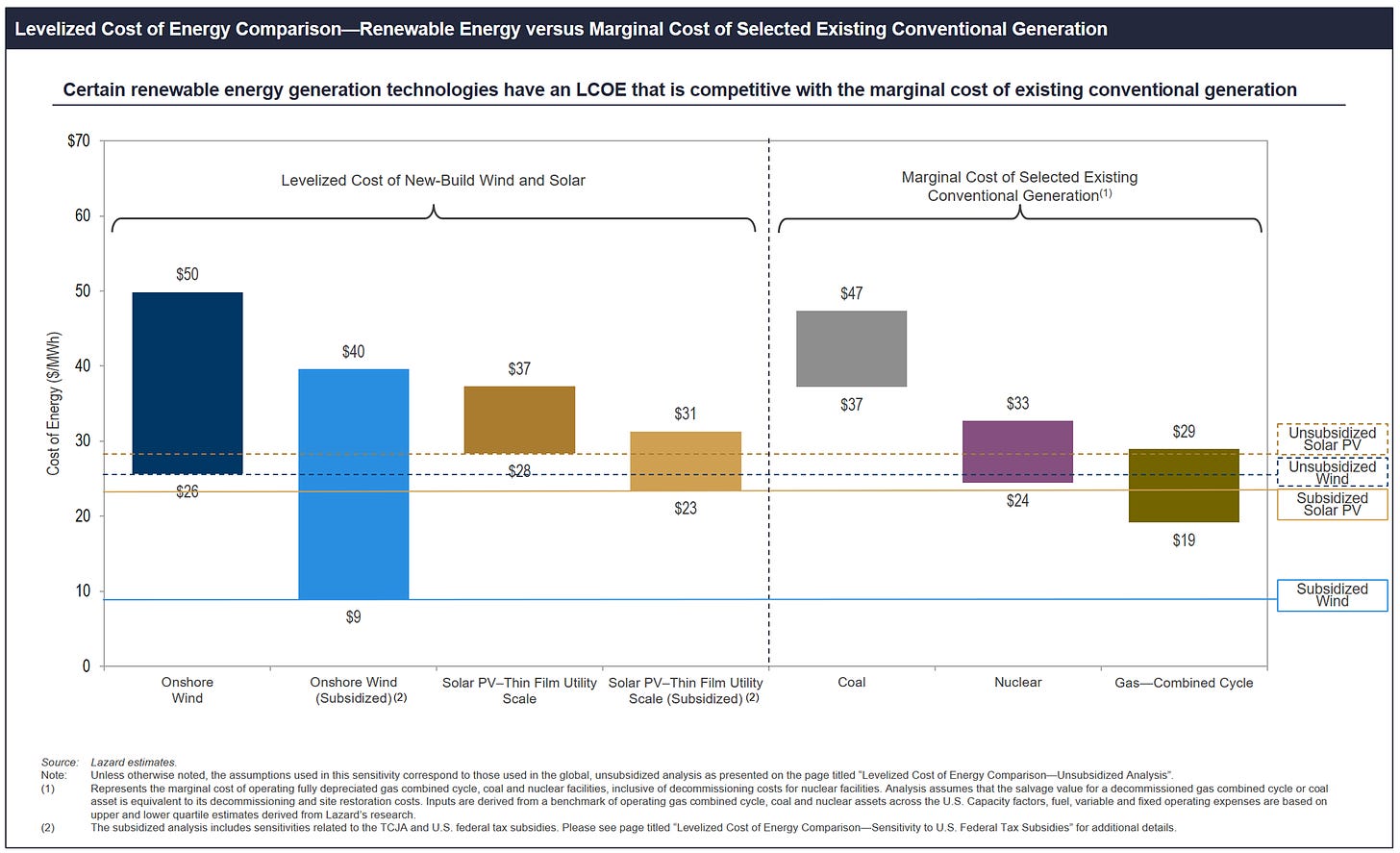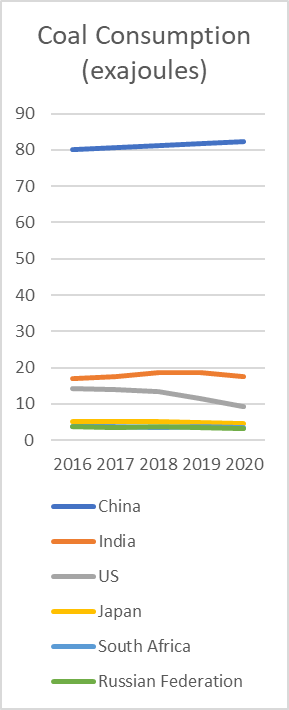Reasons Not to Burn Coal That Have Nothing to Do with Climate Change
You don't need to talk about CO2 to have reasons to stop using coal for electricity generation
In the spirit of moral pidgin, here are some reasons to not burn coal for electricity that have nothing to do with climate change. Pick whichever one creates the most resonance.

Health Reasoning
Burning coal for electricity generation creates significant negative health impacts. 99% of the global population breathes air in excess of WHO guidelines on pollution, leading to an estimated 7 million premature deaths every year. That is equivalent to one New York City dying, annually, because of air pollution. These deaths are not all attributable to coal burning for electricity generation—cars, household smoke for cooking and warmth, wildfires, other fossil fuels, and other sources of air pollution are included in this overall number.
Still, coal’s contribution is significant. One 2021 study estimated that current + planned coal powered plants in Indian cause 112,000 deaths annually. The 2019 Global Burden of Diseases, Injuries, and Risk Factors Study found that coal combustion contributed to 540,000 deaths worldwide in 2017.
Deaths aside, air pollution from coal combustion worsens quality of life: asthma, lung irritation, cancer, heart issues, and many other health problems are worse with this pollution.
Pecuniary Reasoning
Coal is becoming relatively expensive on a standalone basis relative to other sources of electricity. See the chart below from Lazard’s Levelized Cost of Energy analysis. Building new wind and solar is usually cheaper than the marginal cost of operating existing coal plants. This explains why basically no one is building new coal plants in the United States.
Cognition Reasoning
You’re a little slower when you are breathing bad air. Freakonomics did a podcast called “This Is Your Brain On Pollution” that brought this issue to my attention: a number of studies suggest that air quality can have significant impacts on cognition. It appears that much of the deleterious impacts result from particulate matter. For example, a huge study based on tens of thousands of people in France found that the “decrease in cognitive performance with an increase of one interquartile range of [pollutant] exposure ranged from 1% to nearly 5%.”
I’d pay a lot to be 5% faster on my Daily NYT Crosswords...
Sinterklassian Reasoning
Santa Claus needs as much coal as he can get with the way the world is going…
Existential Reasoning
As a sort of civilization-level insurance policy, we should purposefully leave easily accessible coal in the ground so that in the event of a civilizational collapse, the remains of humanity will have the access to energy needed to restart the industrial revolution. The argument was proposed by William MacAskill, philosopher at Oxford and Research Associate at the Future of Humanity Institute. We’ve already drilled all the easily accessible oil but there still exist some deposits of coal that wouldn’t need geologists, GIS mapping, advanced mining techniques and equipment, and the associated infrastructure that would be absent in the event of a collapse. If we were to use up all the surface coal, it could prove really difficult to restart industrial society. I fully endorse this reasoning and will follow the writings of environmentalists and effective altruists asking ‘Should We Buy Coal Mines?’ keenly.
Pigouvian Reasoning
Coal is quickly becoming outpriced by other sources of energy, namely natural gas but also renewables. “But wait,” fossil fuel apologists interject. “Renewables are only cost-competitive because of subsidies!” Yes, I admit that subsidies like the Investment Tax Credit are critical for competitiveness of renewables. But I’d also point out that 1) coal and oil production receives tens of billions of dollars of subsidies as well 2) burning coal has IMMENSE negative externalities that polluters currently don’t have to pay, meaning that there is additional subsidization paid by everyone else in the form of healthcare costs, visual impacts from smog, water pollution, harm to biodiversity, etc. A 2016 study by Lueken, Klima, Griffin, and Apt found that switching from coal to natural gas alone “would lower the total cost of national annual human health damages by US$20 billion to $50 billion annually.”
Make coal burners pay for their externalities instead of making everyone else pay for them!
Equity Reasoning
Poor people and minorities are more likely to live near coal plants. These disadvantaged groups, then, bear an outsized burden of the negative externalities of burning coal, thereby worsening structural inequality.
Geopolitical Reasoning
The faster the world moves away from coal, the sooner that coal loses the geopolitical advantage it confers on its exporters. According to the BP Statistical Review the top exporters of coal are Australia (9.25 exajoules), Indonesia (8.51 exajoules), and Russia (5.66 exajoules). Russia alone exports almost as much coal as the next four countries in the list (Columbia, South Africa, the United States, and Canada).
Before you say, “But we export coal too! We’d lose out just as much!” Note that according to Trade Map, coal exports were almost 4% of total Russian exports in 2021, compared to just 0.7% of American exports. Coal is far more important to Russia than it is to the United States. Reducing the importance of coal therefore reduces the ability of energy bullies like Russia to throw their weight around the international stage.
For fun, I looked at coal consumption worldwide, again using BP’s Statistical Review . The top six countries are shown above; China uses far more coal than any other country. Furthermore, coal consumption is increasing in China while it is flattening or decreasing for most other large consumers. For meaningful change to occur, it must happen in China (shoutout to my Chinese readers).
Ferroequinological Reasoning
Steam powered locomotives are sick. We should reserve coal for their use alone.





